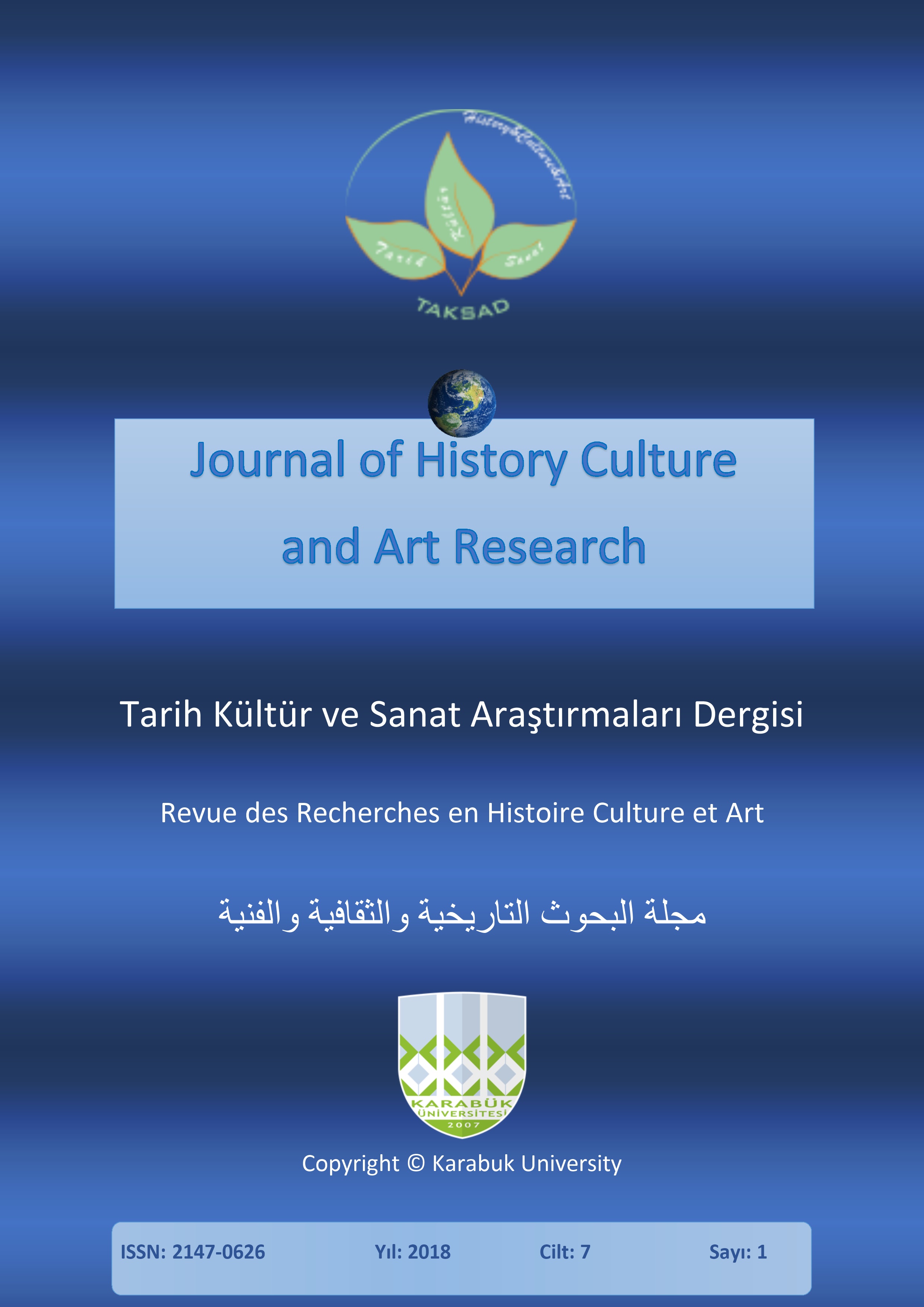Poetics, Ritual and Politics in Two Plays by Ṣalah ‘Abd Al-Ṣabur: Toward an Aesthetics of National Regeneration
DOI:
https://doi.org/10.7596/taksad.v7i1.1428Keywords:
Political theatre, Rituals, Comparative literature, National regeneration, Arab spring, Ṣalah ‘Abd al- Ṣabur.Abstract
In two of his poetic plays, The Princess Waits (1969), written under the ruling of the second president of Egypt Gamal Abdel Nasser (1956-1970 in office) and After the King is Dead (1973), written after Nasser’s death, Ṣalaḥ ‘al- Ṣabūr presents the character of the Poet – who symbolizes the collective conscience of the nation – as the savior figure. In both plays, after a symbolically ritualistic duel, the Poet manages to kill the oppressor and rescue the heroine (Princess\Queen) who represents the oppressed nation. In After the King is Dead, he offers the Queen a long sought for dream, the "child" that symbolizes the hope for national rebirth. In his multi-layered philosophical, mythical and political strata of themes that combine the paradoxes of life and death, love and treason, fertility and barrenness, resistance and submission, Ṣabūr dramatizes his political reformist visions. Giving the two plays the allegorical framework of a folk tale, and ironically using ritual hymns and dances, the author synthesizes the classical traditional techniques with the modern experimental forms. In two superb theatrical pieces, he managed to produce an artistic carnivalesque show that brings together Greek and Oriental myths, ritual, the masque genre, Aristotle, Pirandello, Brecht, Maeterlinck, and Becket. ‘Abd Al- Ṣabūr’s two plays represent a step on the road for an art that may lead the Arabic nation to a state of regeneration that has been quested and sought for by many. They can be regarded as a tentative aesthetics of the sought for democratic utopia or the so-called "Arab spring" of today.
References
‘Abd al- Ṣabūr, Ṣ. (1969). Al Amira Tantaẓir (The Princess Waits). Translated from Arabic by S. Megally, (1975). Cairo: General Egyptian Book Organization.
‘Abd al-Ṣabūr, Ṣ. (1969). Musafir Lil (Night Traveler). Translated by M. M. ‘Inani, (1980). Cairo: General Egyptian Book Organization.
‘Abd al-Ṣabūr, Ṣ. (1972). Ma'sat el Hallaj (Murder in Baghdad): A Verse Play in Two Acts) Translated from Arabic by K. I. Semaan. Leiden: E. J. Brill.
‘Abd al- Ṣabūr, Ṣ. (1973). B‘d an Yamout al Malik (After the King is Dead). Translated from Arabic by N. Seliha, (1986). Cairo: General Egyptian Book Organization.
‘Abd al- Ṣabūr, Ṣ. (1977). Hayaty fi al-Shi‘r (My Life in Poetry). Beirut: Dar el Awda.
Halawy, Y. (1981). Al-Ostora fi al-Shi‘r al-Arabi al-Mo'aser (Myth in the Contemporary Arabic Poetry). Fosoul. 1. Beirut, Lebanon, October, (pp. 135-152).
Havel, V. (1979). The Power of the Powerless. Translated from Czech by Paul Wilson. Retrieved from: http://www.vaclavhavel.cz/index.php?sec=2&id=1&PHPSESSID=6353c37f52b627bd51adde4e5299918a&setln=2#. pdf
Orwell, G. (1964). Politics and the English Language. Horizon, [e-journal] 13, (76) pp. 252-265. Retrieved from: https://archive.org/stream/PoliticsAndTheEnglishLanguage/Politics%20and%20the%20English%20Language_djvu.txt [Accessed on 13102015].
Sallam, A. (2008). Al Ta'beer Al Masrahi Al Shi'ri Bayn al Ta'mol al Zati wal-Infitah 'alal Ma'na (Theatrical Poetic Expression: Between Self Contemplation and Openness to the Meaning). Al Hewar Al Motamaden (Civilized Dialogue). 2348. Retrieved from: http://www.ahewar.org/debat/show.art.asp?aid=141435 [Accessed on 8/4/2016].
Downloads
Published
How to Cite
Issue
Section
License
All papers licensed under Creative Commons 4.0 CC-BY.- Share — copy and redistribute the material in any medium or format
- Adapt — remix, transform, and build upon the material for any purpose, even commercially.
Under the following terms:
Attribution — You must give appropriate credit, provide a link to the license, and indicate if changes were made. You may do so in any reasonable manner, but not in any way that suggests the licensor endorses you or your use.
- No additional restrictions — You may not apply legal terms or technological measures that legally restrict others from doing anything the license permits.







